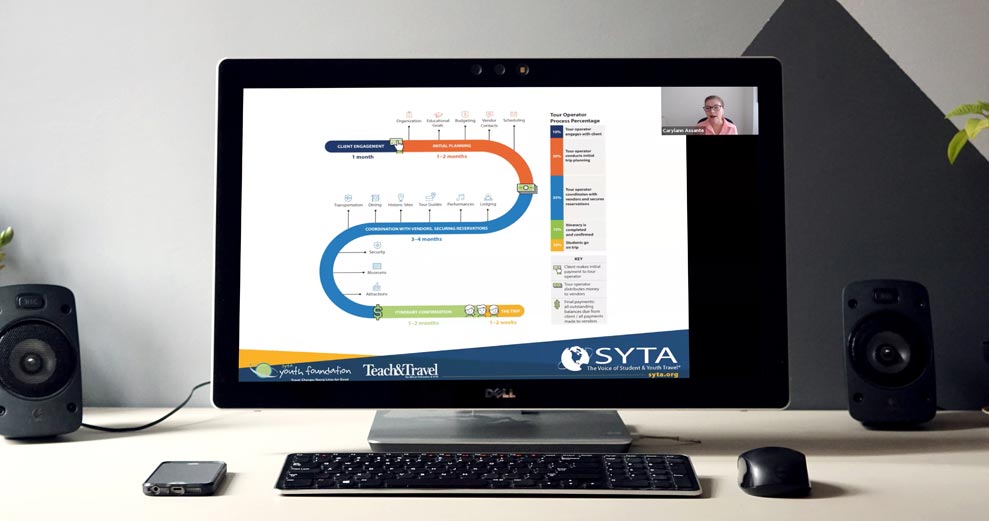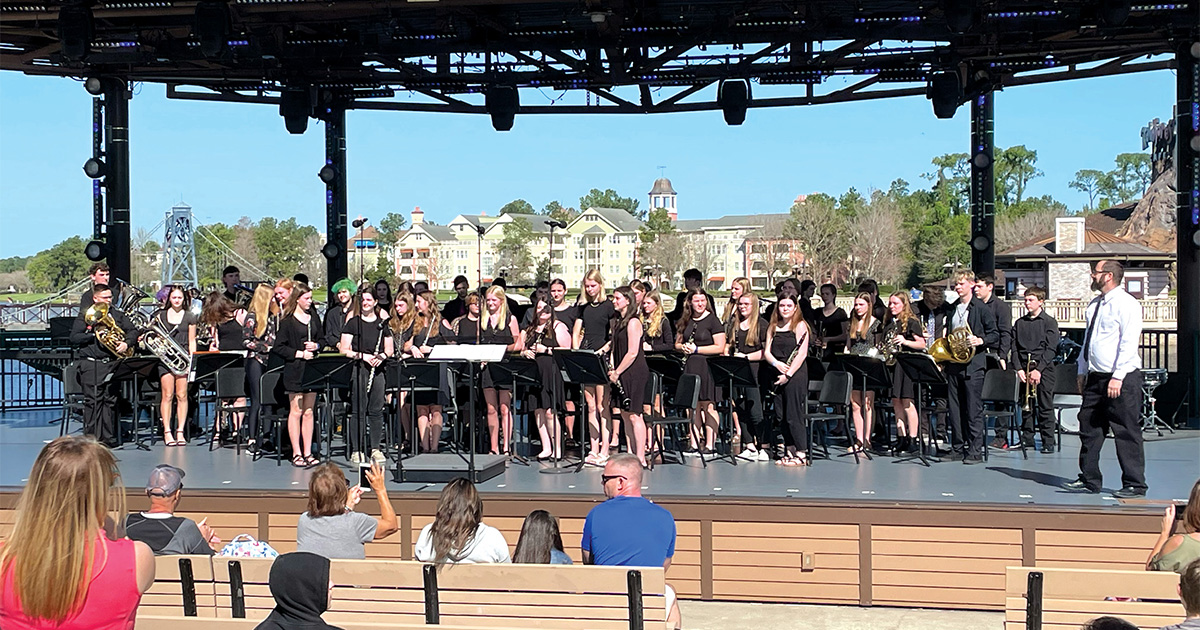Student travel is on the horizon, and many educators have questions about what to expect.
That’s why SYTA is hosting a three-part series on What Educators Need To Know About Student Travel Post-COVID. The first-part featured Executive Director Carylann Assante going over all the “basics” and more.
Whether you’re an experienced educator looking for updates or a brand new trip leader wondering where to start, this seminar covers many of your concerns with insight from student travel experts.
Following are just a few highlights from the 50-minute seminar, but the discussion went far more in-depth than this. To watch the full presentation and learn all the details, just head to syta.org.
We are seeing students traveling again, and they’re doing it in a health-focused and safe way. SYTA has heard from traveling teachers that they’re feeling really good about the care that is being provided by everyone along the way. They’ve felt very comfortable with the health and safety procedures available for them.
Many schools did not have a complete understanding of the trip-planning process. But SYTA is here to help, offering guidance on timelines and preparations. The typical trip takes tour operators 6 to 9 months to prepare, from client engagement to initial planning, coordination with vendors and itinerary confirmation — not to mention the trip itself. SYTA has also created a resource guide for educators, the Student & Youth Travel Toolkit.
Hotel safety policies differ from chain to chain, but by and large we’re seeing no room service or buffets, less bell service (i.e. luggage handlers) and updated cleaning procedures. The number of students per room, however, remains up to the school group and tour operator.
Restaurant and attraction safety policies are changing by the day, so the key is both to be flexible and to plan well ahead of time. If you’re going on the trip soon and want to avoid some of the hassle of restrictions, you can plan on doing more boxed lunches, or eating in smaller groups across various restaurants, or spending more time at one attraction rather than visiting a dozen in one day. You might also want to consider a more regional trip—whatever it takes for everyone involved to feel comfortable.
Transportation safety policies vary widely, from motorcoaches to airlines and beyond, and this is discussed much further in the seminar.
Insurance is still a hot topic, which is why the next seminar on April 7 will focus on travel insurance. It can be a complicated issue to navigate, as every state has different requirements. However, the insurance industry has also learned a lot over the past year and continues to have conversations with SYTA and other travel partners.
The main tips for travel in the future are to communicate openly and often with your operator, create plans for different scenarios, and consider adding additional chaperones. The seminar also addresses handling sick kids on a trip and the issue of liability.
Watch it all here, and keep an eye out for the next session on April 7!




